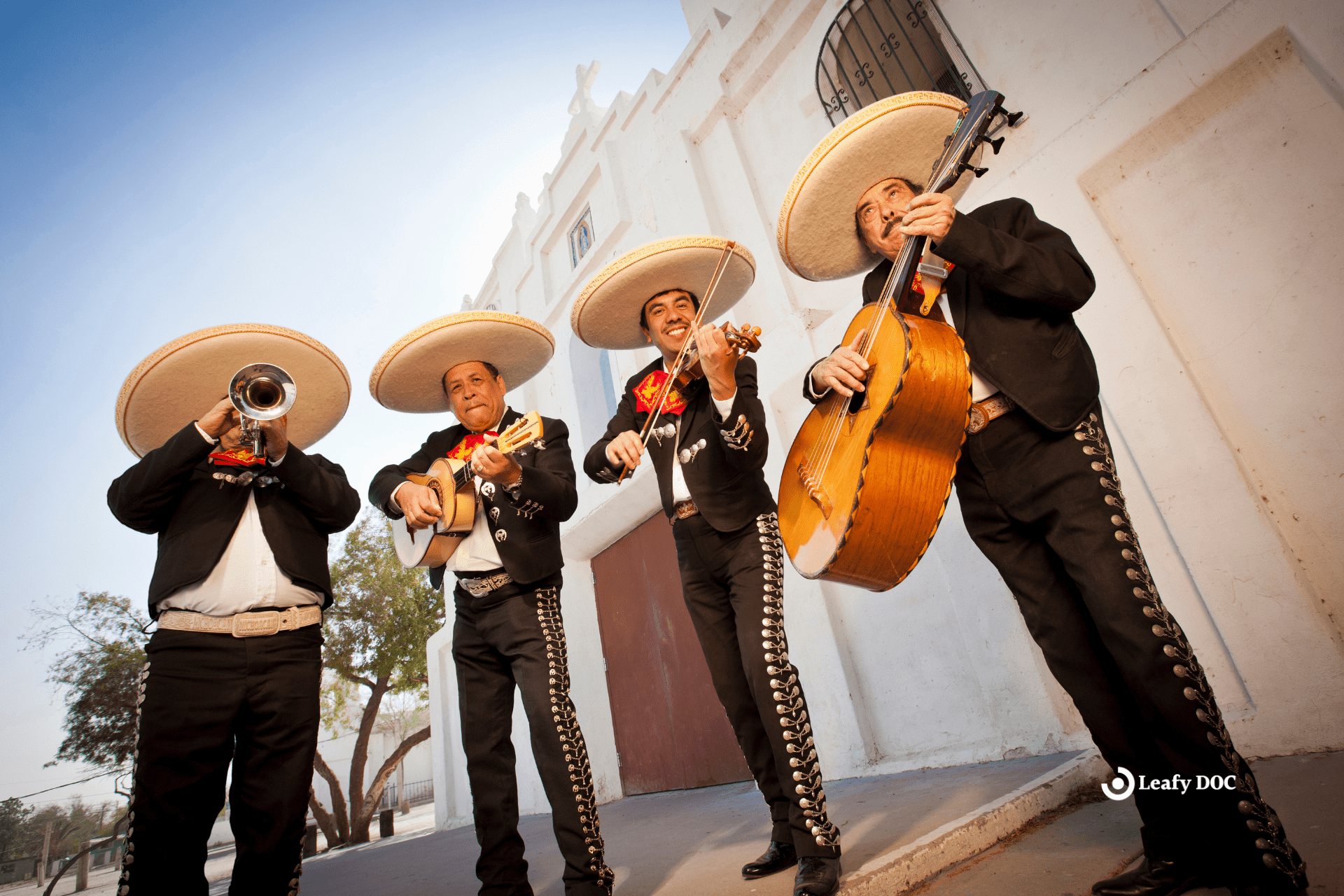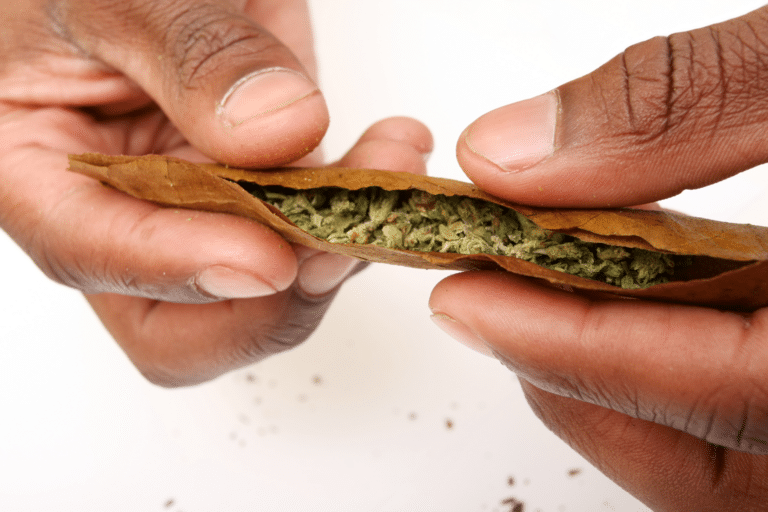The Connection Between La Cucaracha And Marijuana
by Haley Mills · October 5, 2023
Discover the fascinating connection between La Cucaracha and marijuana in this eye-opening article. Unveiling a surprising bond, click here to unravel the mystery!

Marijuana, a widely debated and controversial substance, has long been associated with various cultural symbols and references. One surprising connection that has often intrigued scholars and enthusiasts is the link between marijuana and the popular Mexican folk song “La Cucaracha.”
While some may dismiss this connection as mere speculation or coincidence, a closer examination reveals a fascinating web of historical references, cultural significance, and modern interpretations.
Before diving into this intriguing connection, let’s address a potential objection. Some may argue that associating “La Cucaracha” with marijuana is a stretch of the imagination or an attempt to sensationalize the song. However, it is essential to approach this topic with an open mind and recognize the significance of symbolism and cultural references in shaping our understanding of various subjects.
That said, the origins of “La Cucaracha” can be traced back to the 19th century, during the Mexican Revolution. With its memorable melody and intriguing lyrics, this catchy folk song quickly became a symbol of resistance and social commentary. But it wasn’t until later years that the connection to marijuana culture began to emerge.
In the following sections, we will explore the historical references and symbolism of “La Cucaracha,” its cultural significance and adaptations, and how it has come to be associated with marijuana culture in modern times.
Key Takeaways
- “La Cucaracha” is a satirical song criticizing the Mexican Revolution and corrupt government.
- The line “La Cucaracha, la Cucaracha, ya no puede caminar” is interpreted as referring to the government’s inability to effectively govern.
- The song has become associated with marijuana culture, with the addition of the line “Marijuana que fumar” during the prohibition era in the United States.
- The connection between “La Cucaracha” and marijuana raises legal and ethical concerns, as marijuana is illegal in many places.
The Origins of “La Cucaracha”
La Cucaracha, a popular Mexican folk song, has origins that date back to the early 1900s. It is a song passed down through generations, and its connection to marijuana can be traced through its lyrics.
The song’s lyrics suggest the use of drug to overcome the hardships of life, similar to how a hypothetical struggling musician might use marijuana as a source of inspiration for their music.
La Cucaracha is deeply rooted in Mexican folklore and myths. The song’s lyrics tell the story of a cockroach that cannot walk because it has lost one of its legs. In Mexican culture, the cockroach is often seen as a symbol of resilience and perseverance.
The lyrics of the song depict the cockroach overcoming its physical limitations and continuing to move forward, much like how marijuana can be seen as a way for individuals to cope with the challenges of life.
Furthermore, La Cucaracha’s influence on popular music cannot be ignored. Countless artists have covered the song, becoming a staple in Mexican culture. Its catchy melody and relatable lyrics have resonated with people from all walks of life.
While the connection between La Cucaracha and marijuana may not be explicitly stated in the song, the lyrics’ underlying message of overcoming hardships aligns with the idea of using marijuana as a means of escape or solace.
The origins of La Cucaracha can be traced back to the early 1900s, and its connection to marijuana can be seen through its lyrics, which suggest the use of the drug to overcome the hardships of life.
During the Mexican Revolution, La Cucaracha evolved into a revolutionary anthem, especially among the troops of Commander Pancho Villa. Some versions sung in battle included the now-famous line “marijuana que fumar” (“marijuana to smoke”), reflecting both the hardships of war and the growing cultural connection between the song and cannabis use. This revolutionary version helped solidify La Cucaracha as more than a folk tune, it became a symbol of resilience and a subtle nod to marijuana’s role as a coping mechanism during turbulent times.
The song’s deep roots in Mexican folklore and its influence on popular music further highlight the cultural significance of this connection.
Historical References and Symbolism
Historical references and symbolism intertwine in the connection between “La Cucaracha” and marijuana, revealing a hidden narrative of cultural significance.
The song “La Cucaracha” has been deeply influenced by various historical musical traditions. Its origins can be traced back to Mexico in the early 19th century, where it was initially a traditional corrido, a narrative ballad. Over time, “La Cucaracha” has evolved and been adapted by different cultures, incorporating jazz, mariachi, and even rock elements. This musical diversity reflects the rich cultural exchange and influence that has shaped the song’s history.
In addition to its musical influences, “La Cucaracha” has also been subject to various political interpretations, particularly surrounding its lyrics and symbolism. The song’s lyrics often refer to a cockroach that’s unable to walk because it’s lost one of its legs. This imagery has been interpreted as a metaphor for political corruption or societal unrest. For instance, during the Mexican Revolution, the lyrics were altered to criticize various political figures and express discontent with the government.
This political interpretation has continued to evolve over time, with different cultures and movements adopting “La Cucaracha” as a symbol of resistance or rebellion against oppressive regimes.
Overall, the historical references and symbolism surrounding “La Cucaracha” provide a fascinating glimpse into the cultural significance of the song. Its musical influences and political interpretations have allowed it to transcend borders and resonate with people from various backgrounds. Whether it’s through its catchy melody or its thought-provoking lyrics, “La Cucaracha” continues to hold a special place in the hearts of many, reminding them of the power of music to convey powerful messages and unite people.
Victoriano Huerta’s Role in “La Cucaracha” Symbolism
One prominent interpretation of “La Cucaracha” links the song’s iconic cockroach to Victoriano Huerta, Mexico’s controversial president during the Revolution (1913–1914). Known for his authoritarian leadership and rumored substance use, Huerta became a frequent target of revolutionary satire.
Folk singers and critics often portrayed him as the limping cockroach—symbolizing a corrupt leader unable to function effectively. Some versions of the song reportedly included lines mocking his alleged marijuana use, further reinforcing this image. Through this lens, “La Cucaracha” wasn’t just a catchy tune, but a sharp piece of political commentary aimed at undermining Huerta’s legacy.
The Connection Between “Roach” in Cannabis Culture and “La Cucaracha”
Ever wondered why the word “roach” is used in cannabis circles to describe the leftover end of a joint or blunt? Some believe this term ties back to the folk song “La Cucaracha.”
In cannabis culture, a roach refers to the final, unsmokable bit of a joint, a small remnant that’s hard to hold or inhale. The connection to “La Cucaracha” becomes symbolic when you consider the lyrics about a cockroach that “can’t walk” after losing a leg. Just like the injured insect, the cannabis roach is no longer able to perform its original function.
Some enthusiasts suggest that the link isn’t just about language, it’s about resilience. In folklore, the cockroach is a survivor. In cannabis use, the roach represents stretching what you have and savoring every last bit. In both cases, what’s left behind still carries meaning.
Cultural Significance and Adaptations
Regarding cultural significance and adaptations, you may find it intriguing how “La Cucaracha” has been creatively reimagined in various forms.
One reason La Cucaracha has remained so enduring is its adaptability across generations. Many people first encounter the song not through professional recordings, but in more personal settings—whether during Spanish language lessons, a classroom sing-along, or a spirited rendition at a family gathering. Like most folk songs, La Cucaracha has no fixed origin story or set of lyrics, allowing each version to evolve with its audience.
In different parts of Mexico and other Spanish-speaking regions, the lyrics often shift to reflect local slang, cultural references, or even political humor. Some families and schools pass down “cleaned-up” versions of the song that omit controversial themes, while others embrace more irreverent lines referencing revolutionary unrest or marijuana.
In addition to musical adaptations, “La Cucaracha” exhibits regional variations, highlighting its cultural significance. As the song has traveled across different regions and countries, it has changed lyrics and melody to reflect the local culture and traditions.
For example, in different parts of Mexico, variations of the song mention specific cities or regions, adding a personal touch and connection to the local audience. Similarly, in other Spanish-speaking countries, “La Cucaracha” may incorporate local slang or references to reflect the unique cultural context of that particular region.
Overall, the cultural significance and adaptations of “La Cucaracha” can be seen through its numerous musical adaptations and regional variations. This timeless song continues to captivate audiences worldwide, showcasing its ability to transcend boundaries and resonate with different cultures.
Whether it’s a mariachi band in Mexico or a modern pop artist in another country, “La Cucaracha” remains a beloved and versatile piece of music that celebrates the rich diversity of our global community.
Notable Artists Who’ve Performed “La Cucaracha”
The enduring popularity of “La Cucaracha” is evident in the wide range of artists who’ve reinterpreted it over the years. Jazz legend Louis Armstrong brought his unmistakable style to the tune, while rock and roll pioneers like Bill Haley & His Comets gave it an upbeat twist.
Pianist and entertainer Liberace added his own dramatic flair to the melody, and iconic Mexican singer Cuco Sánchez offered a heartfelt, culturally rooted version. International acts like Los Machucambos have also reimagined the folk classic, each adding new dimensions to its rich musical legacy.
These varied interpretations underscore the song’s global appeal and its ability to evolve while staying true to its roots.
The Connection to Marijuana Culture
Imagine yourself immersed in the vibrant world of marijuana culture, where the faint sound of a familiar melody transports you to a place of carefree bliss. In this realm, “La Cucaracha” holds a special place, resonating deeply with enthusiasts and symbolizing their shared experiences.
The connection between “La Cucaracha” and marijuana culture is undeniable, with the song’s lyrics and catchy tune often associated with the drug. One of the reasons for this connection is the popularity and mainstream acceptance of marijuana within certain subcultures. As marijuana has become increasingly accepted and legalized in various parts of the world, it has gained a substantial following. This popularity has created a unique bond among marijuana enthusiasts, who often use “La Cucaracha” as a way to express their shared love for the plant.
Furthermore, the impact of marijuana on music and art cannot be overlooked. Many musicians and artists have incorporated marijuana themes into their work, using it as a source of inspiration and creative expression. “La Cucaracha” is no exception, as countless artists have adapted and reimagined it throughout history. This song symbolizes the counterculture movement, representing freedom, rebellion, and the pursuit of happiness.
The connection between “La Cucaracha” and marijuana culture is rooted in the popularity and mainstream acceptance of marijuana, as well as its impact on music and art. This iconic song serves as a reminder of the shared experiences and values held by marijuana enthusiasts, and continues to be a beloved symbol within the community.
Modern Interpretations and Controversies
Contrary to popular belief, you may be surprised by the modern interpretations and controversies surrounding the link between “La Cucaracha” and marijuana.
While the song has long been associated with marijuana culture, its connection to the drug is not as straightforward as it seems.
“La Cucaracha” is a traditional Spanish folk song adapted and modified over the years, leading to various interpretations and debates.
One of the modern interpretations of “La Cucaracha” is that it is a satirical song that criticizes the Mexican Revolution and the corrupt government at the time.
Some argue that the line “La Cucaracha, la Cucaracha, ya no puede caminar” (The cockroach, the cockroach, can’t walk anymore) refers to the government’s inability to govern and address the issues of the country effectively.
This interpretation suggests that the song has a social impact beyond its association with marijuana, highlighting the struggles and frustrations of the Mexican people during that period.
However, the link between “La Cucaracha” and marijuana cannot be dismissed entirely.
The song’s association with marijuana culture can be traced back to the 1920s, during the prohibition era in the United States.
It is believed that the line “Marijuana que fumar” (Marijuana to smoke) was added to the song during this time, reflecting the popularity of marijuana among certain subcultures.
During the 1920s, when marijuana references carried a rebellious tone, one particular version of the song added a memorable line:
“Marihuana que fumar”—meaning “marijuana to smoke.”
The full lyrics in some renditions go:
La cucaracha, la cucaracha, ya no puede caminar, porque no tiene, porque le falta, marihuana que fumar.
Which translates to:
The cockroach, the cockroach, cannot walk anymore, because it hasn’t, because it lacks, marijuana to smoke.
These lyrics helped cement “La Cucaracha” as a cultural symbol in marijuana circles—playful, subversive, and deeply tied to the evolving identity of cannabis communities.
This association has persisted over the years, with “La Cucaracha” often being played or sung in contexts related to marijuana use.
The legal implications of this connection are complex.
While marijuana has been legalized for recreational or medicinal use in some states and countries, it remains illegal in many others.
The use of “La Cucaracha” in relation to marijuana can, therefore be seen as promoting or glorifying an illegal substance, which raises ethical and legal concerns.
The song’s historical and cultural significance should be considered when discussing its modern interpretations and controversies.
In conclusion, the connection between “La Cucaracha” and marijuana is a subject of modern interpretations and controversies.
While the song has a rich history and social impact beyond its association with marijuana, the link between the two cannot be ignored.
Understanding the various interpretations and debates surrounding “La Cucaracha” allows for a more comprehensive understanding of its significance and cultural relevance.
Conclusion
In conclusion, “La Cucaracha” is a folk song that has deep historical roots and cultural significance. Its origins can be traced back to Mexico, where it was believed to have been written during the Mexican Revolution. The song has been adapted and modified over time, with various versions and interpretations arising in different parts of the world.
Throughout history, “La Cucaracha” has been used as a symbol and a metaphor for various political and social issues. It’s associated with resistance, rebellion, and social unrest. The song’s lyrics, though simple, carry powerful messages that resonate with people across different generations and cultures.
One interesting connection that’s been made is between “La Cucaracha” and marijuana culture. Some interpretations suggest that the song’s lyrics, which mention a cockroach unable to walk due to a lack of marijuana, allude to the drug’s influence on society. This connection has further propelled the song’s popularity among marijuana enthusiasts, making it a staple in their gatherings and celebrations.
However, it’s important to note that this connection between “La Cucaracha” and marijuana isn’t universally accepted. Some argue that the association is merely a modern interpretation and that this particular connection shouldn’t overshadow the song’s historical and cultural significance. Regardless, “La Cucaracha” continues to be a widely recognized and beloved song transcending borders and generations.
As the saying goes, “Music is the universal language of mankind.” This adage holds true for “La Cucaracha,” a song that has resonated with people from different cultures and backgrounds. Its historical origins, cultural symbolism, and adaptations have made it a timeless piece of folk music. While the connection to marijuana culture may be subject to debate, it’s undeniable that “La Cucaracha” has left a lasting impact on the world of music and will continue to do so for generations to come.
Last Updated: July 16, 2025
Get Approved for Your Medical Marijuana Card in Minutes!

Get Your Medical Card
Connect with a licensed physician online in minutes

Like This Article?
Share with your friends
Table of Contents
Keep Reading
-
Are There Health Risks When Smoking Blunts?
When you smoke a blunt, you’re inhaling weed and tobacco. Here’s what you need to know about the health risks associated with smoking blunts.
-
How Do I Get a Medical Marijuana Card in Texas?
Are you a Texas resident interested in obtaining a medical marijuana card? Check out this page to learn the requirements and how to get started.
-
Cannabis For Food Poisoning: Relief Or Risk?
Discover the surprising potential of cannabis for food poisoning relief. Is it a game-changer or a risky remedy? Uncover the truth now!



